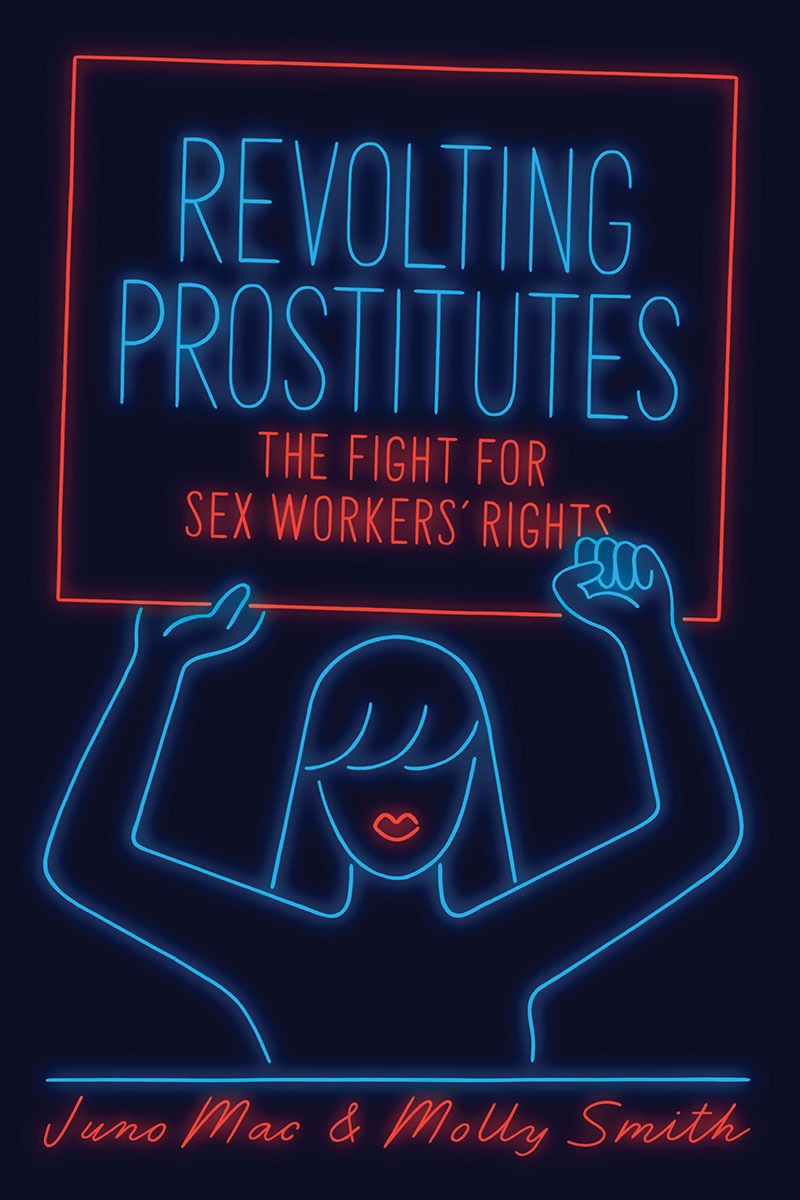
Revolting Prostitutes: The Fight for Sex Workers’ Rights (Verso) by Molly Smith and Juno Mac
Like many marginalised groups, sex workers are often spoken for and over. Even well-meaning feminist or humanitarian critiques can disregard sex workers’ agency. For the authors of Revolting Prostitutes to have produced “a book about prostitution written by prostitutes”, then, is significant. The authors construct their case through direct experience, both their own and that of sex workers around the world, as well as through data and research. Steering a course between liberal views of prostitution as personal empowerment and conservative condemnations of it as sinful degradation, the book demonstrates the inadequacy of binary positions and the need for nuance.
As the wordplay of the book’s title highlights, attitudes to sex work can be characterised by prurience, with confused cultural attitudes to sex or to women transmitted to debates around prostitution. Sex work is often treated as a problem in itself, rather than a symptom of mainstream societal failures – and as a single issue rather than, as described in Revolting Prostitutes, an interlocking “matrix of oppressions” including poverty, racism, homophobia and transphobia. The book centres the diversity of sex workers’ backgrounds and views, and reminds us that sex workers are also parents, carers, friends and activists.
The book’s first half relates the past and present of sex work to the history of policing and borders, and to collective action. The book contains examples from mediaeval times to the present day of sex workers organising and taking part in wider struggles for social justice. These networks of mutual aid are vital in a context where authorities that might provide protection – police or lawmakers – are hostile, leaving prostitutes vulnerable to arrest or eviction for working together in shared properties, or risking deportation for seeking police help after theft or assault.
In the book’s second half, the authors survey and analyse various global models of sex work and policy: from the reactionary full criminalisation of the US, South Africa, Russia and China to the would-be progressive “Nordic model” which reduces demand through criminalising the purchase of sex, but increases danger for workers whose need to sell sex is greater than their clients’ need to purchase. Systems which measure success in “combating” prostitution through decreasing its visibility via criminalisation also ignore how these strategies reduce the ability of sex workers to assert their rights. The authors relate this to addiction, homelessness, police discrimination and poverty, and call for these to be systematically addressed.
Liberal sex-positivity downplays economic coercion in order to present sex work as an empowered individual choice, while anti-prostitution campaigners remove economic considerations when they pathologise sex workers as “bizarre or broken”. In contrast to both, by centring economic and material concerns – treating sex work primarily as work, rather than as sex – this book takes a precise and pragmatic view of prostitution in theory and practice. The authors argue that all waged work is exploitative, and that while decriminalisation of sex work cannot erase the conflict of class interests that affects any workplace, it can mitigate its most intense manifestations by allowing sex workers to access labour laws on minimum income, health, safety and security.
Revolting Prostitutes is sharply and convincingly argued, fuelled by anger and compassion. While debates around sex work may be complex and fraught, the authors make starkly simple demands: for more safe and secure forms of all work, sex work included, and for empathy, solidarity and understanding of sex workers’ needs to take precedence over more hostile attitudes to their existence.

